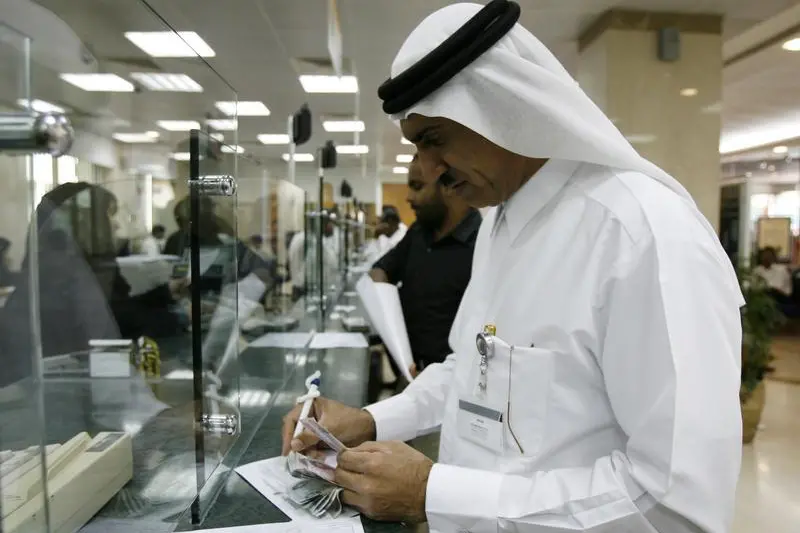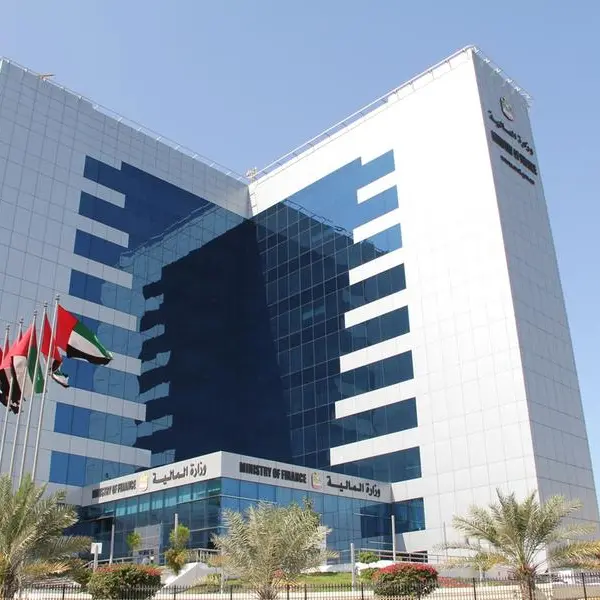PHOTO
In light of recent talks about the International Monetary Fund's recommendation to the UAE to , both qualms and concerns have been expressed from investors and expats residing in the country. In this sector study, Capital Business takes a look into this topic and presents different views from experts at key firms in the country in order to better understand this issue and its implications.
The dilemma
The UAE has long been a safe haven for investors and a great place to do business due to its tax free environment. However, the country is slowly moving towards introducing new taxes that could change the economic scene. "The introduction of corporate tax and VAT in the UAE has always been a question of when, not if. For government spending on infrastructure and services to be maintained and increased in the future, sustainable revenues based on business success and economic growth must be established for the long term," states Edward Mainwaring Burton, Senior Financial Planner, deVere Acuma.
The IMF believes that the UAE should consider raising non-hydrocarbon revenues by introducing a VAT, in coordination with the GCC countries, and broadening corporate income and excise taxes.
"The introduction of VAT or Corporate Tax (or both), which are considered as broad based tax systems, would help the Government to achieve its social and economic policy goals in notably reducing its high reliance on hydrocarbon revenues, and would ensure alternative sustainable sources of revenues to the Federal Government," says Jeanine Daou, Partner, PwC.
She continues, "Successful implementation of any taxation will require the Government to consider several factors as a measure of ensuring its readiness for the new system, including the UAE's global competitiveness' position, legislation currently applied in the free trade zones, and the preparedness of business in complying with the new taxation."
However, this step has its own set of pros and cons says Dr. Reyadh Al Kabban, Founder and Managing Director, Al Kabban & Associates. "While the addition of VAT and corporate tax would add a further source of government revenue that could be put towards improving an already impressive infrastructure, it would also increase the UAE resident's cost of living as businesses would look to compensate for tax payments by recovering it from the consumer."
Commenting on the same, Cathryn Vanderspar, Partner, Head of Tax, Eversheds notes that "At a governmental level it is hoped that the introduction of a tax base in the UAE will reduce dependency on subsidy and exposure to the oil price and the dollar. However, the economic and social impact of a corporation tax and a value added tax (VAT) implications will depend on exactly what and who the taxes apply to and the rates imposed."
The UAE's ministry of finance affirmed that once a final agreement on imposing a VAT law is reached, there will be an 18 month grace period for concerned sectors and entities to implement and fulfill the requirements of their tax obligations. "It has been suggested that VAT would be set at a rate not exceeding 5%, which may not hamper consumer spending to a large extent. However, any reduction in consumer spending would impact businesses negatively given that their expenses would be increased by the introduction of corporate taxes," affirms Dr. Reyadh.
Elaborating further on this, Jameel Ahmad, Chief Market Analyst, FXTM says, "The introduction of corporate tax might weigh on investors' minds, the UAE will remain attractive to employers when you consider that the country has other benefits such as lower labor costs and that the implementation of a minimum wage has not yet been discussed."
The aftermath
The IMF has told the country's economists that the taxes could generate an additional 7.4 percent of non-hydrocarbon domestic product, replacing some of the $42 billion the UAE is expected to lose from oil export revenues this year, compared to 2014.
Talking about the influence these reforms will have on the economy, Jeanine sees that one of the main objectives of tax reforms is to finance public expenditures. "The expected inflows from the new revenue streams will enhance Federal Government budget, granting it additional leverage to invest in growth enhancing sectors hence stimulating the economy. The IMF has recently estimated that adopting a corporate tax at a rate of 10 percent applicable on a broad base would raise Government revenue by 4.1 percent of non-hydrocarbon GDP, whereas the implementation of a VAT system at a 5 percent rate would increase Government revenue by 2.7 percent of non-hydrocarbon GDP."
In their comments, participants in this study agree that the impact of VAT will not be significant, however the compliance burden and the impact of corporate taxes will be noteworthy. "Experience shows that, even if the tax itself is not a significant cost, the compliance burden may be significant indeed. For individuals it will mean higher prices for the goods and services it applies to. Clearly, the choice of goods and services will matter," says Cathryn.
Supporting this point, Akber Naqvi, Executive Director & Head of Asset Management, Al Masah Capital affirms that the introduction of VAT will have a limited and most importantly, controlled impact on the overall economy, while corporate tax is more likely to discourage businesses considering investment in the region and will more negatively impact GDP growth. He continues, "The corporate tax does not sit well with long-term tax exemptions that have been promised to free-zones or the tax-free economic planning strategies that have been developed over time. Therefore, while the introduction of VAT at this point will be much more easier and acceptable and will pave the way for full suite of taxes in the future, corporate taxes will be slightly stressful for the business community and consumers."
Elaborating furthermore, he says, "The impact of corporate taxes will be much more dramatic, especially when UAE offers the most benign corporate taxation regime of any GCC country at this time. Therefore, corporate taxes will not only diminish the 'tax-free' image that the country has so very well leveraged in the past but will also adversely impact the regional competitiveness. Further, decrease in shareholders' returns will put off future investments in the region while businesses will look to optimize operating costs by scaling back annual salary increases, which will negatively affect the overall domestic consumption."
The UAE is already considered as a relatively expensive place to live in. On this note, Fathi Ben Grira, CEO, Menacorp says, "VAT will automatically increase living costs for residents. However, if we can expect that consumers will adjust their spending level accordingly, I don't believe that it will result in an expat exodus as the country offers unparalleled opportunities compared to most of other places in the world."
Moreover, a comprehensive and well-structured tax regime is a common trait among developed and well-managed economies and is useful for building national economic stability and funding public services explains Edward.
Yet, the introduction of VAT in the UAE, which would make goods and services more expensive will eventually drive people to reduce their savings. On this note, Dr. Reyadh declares, "Once introduced, we would expect a decrease in consumer spending, the extent of which will depend on the rate of VAT. Businesses may slow down initially depending on the manner in which the VAT is introduced, however their employees would be facing increased cost of living and could start demanding an increase in salary which the businesses might not be able to provide for. The above represents speculation which cannot be confirmed until further details of the legislation is provided and the manner in which it will be introduced is explained."
Commenting on the same matter, Marcus Gent, Managing Director, Friends Provident International says, "The introduction of VAT would inevitably mean that people's disposable income is reduced to an extent, but this will largely depend on their lifestyle. Some may be forced to economize in certain areas as they adjust to the new tax and this could mean that some are tempted to reduce - or to stop paying altogether - premiums on their savings and protection plans. I would urge anyone considering this to think long and hard before making such a decision, and to take appropriate financial advice before doing so." He further explains that in the absence of a pension system for expatriates, individuals have to make adequate provision for a comfortable retirement - or for whatever they want from life - and to protect themselves and their families against the consequences of dying prematurely or falling seriously ill.
Talking about the impacts corporate taxations will have on businesses, Jameel says, "Starting with the corporate tax, we might see entities attempt to downscale on employee pay and bonuses to offset the additional costs of operating in the UAE but this is unlikely to limit consumer spending on a domestic level. I would not expect the implementation of a corporate tax to lead to major corporations leaving the UAE, however it would likely impact some of the attraction for companies who were possibly considering entering the Emirates."
Moreover, he adds, "In regards to the added sales tax, it is currently expected that the VAT will only be added to luxury goods meaning that it would only impact the wealthiest of residents in the UAE. If this was an income tax introduction, then there would be a larger threat of this impacting the UAE's pulling power when it comes to attracting top talent. With it currently being suggested that an income tax introduction is not currently on the table, I would not expect expatriates to consider leaving the Emirates."
From a business perspective, VAT should not constitute an additional cost for businesses reads Jeanine. "Nonetheless, businesses should look into their commercial strategies in light of a potential shift in demand and consumers' spending, as an approach to properly anticipate the changes and ensure a smooth transition. Moreover, businesses should have in place appropriate systems, processes and knowledge to efficiently and accurately fulfil compliance requirements."
Will the UAE lose its competitive advantage?
Residents in the UAE voiced their concerns loudly about the possibility that this new regime might compel the country to lessen its competitive advantage, yet some people would argue that.
"The UAE will be less competitive than it is today", says Fathi. "But, it will remain competitive enough if compared to other countries as these new taxes will be moderate."
"Competitiveness needs to be measured according to various indicators and tax is only one of them," notes Jeanine. "The World Economic Forum's 2014-2015 annual Global Competitiveness Report placed the UAE 12th globally and in pole position in the Middle East, indicating a highly attractive business environment."
She continues by stressing the fact that the introduction of new taxes would certainly impact investment attractiveness but the way the new tax system is designed is as important as the level of taxes levied. "There is also a need to compare the taxes introduced with other countries in the region and globally knowing that very few countries do not levy currently Corporate Tax and that recent trends show an increase in VAT rate in a large number of economies. The envisaged VAT rate in the UAE at a relatively low level and that is levied on an unburdened economy should not affect significantly the UAE's global competitiveness."
On the other hand, and given that all GCC nations will be introducing VAT and corporate taxes with the UAE, Dr. Reyadh declares, "We don't believe that the UAE will lose its appeal for those wishing to reside and work in the GCC as they will be compensated for rising costs by the businesses that adapt to the changing economic environment. However, we do believe that it will have a negative impact on business men and international corporations looking to invest and establish themselves in the UAE or GCC until further clarity on the new laws is provided."
Supporting this point, Akber confirms that the implementation of indirect taxes will certainly increase the cost of living. "However, UAE's competitiveness as an employment market is no longer limited to low-tax image but also involves other factors such as economic and political stability, world class infrastructure and cultural leniency. The UAE will continue to rank very highly on these factors and therefore, despite the implementation of taxes, will likely remain the most attractive destination for foreigners to work and live in amongst the GCC countries."
Elaborating furthermore, Akber sees that one key consideration would be the status of free trade zones under the new tax regime. "UAE's free zones are a huge attraction amongst foreign investors and keeping them exempt from taxes will be a good way to ensure that investor interest remains high going forward. Further, this will also negate any regional competition from countries such as Iran (especially with removal of UN sanctions), which may try to leverage this opportunity by offering 'tax breaks' to foreign businesses."
Also expressing great confidence in the UAE, Fathi proclaims that the UAE will remain a success story for the foreseeable future. "The world's economy is not in a great shape and the UAE is one of the very few pockets of growth. It's also the safe haven of the region and the center of the new world (at the intersection of CIS countries, Africa and the Indian sub-continent). It's much more than a tax free environment. As long as the new taxes are moderate and simple, international investors will keep on investing in the UAE."
Nevertheless, these taxes will certainly translate into optimistic opportunities in the long run. Jeanine considers that "From a macro perspective, the expected revenue streams to be generated from these taxes could be positively utilized to create an environment that allows for long-term sustainable growth, along with the expected jobs creation."
Furthermore, Edward strongly believes that although foreign investors may see a short-term reduction in their potential gains due to taxes being imposed, the new structure will actually attract more investment. "As the country begins to show a further reduced dependence on oil and more developed fiscal and financial frameworks, perceived security for the long term will be greatly increased."
He also adds, "Interestingly enough, of the top ten most competitive economies in the world according to the World Economic Forum, none are free of corporation tax and most are also among the harshest tax regimes in the world. The fact is that tax-free jurisdictions are often attractive for established foreign companies that wish to take advantage of that system to reduce overheads and expand but are not as conducive to home-grown innovation and fresh ideas."
Accordingly, after having revealed various opinions on the VAT and Corporation Tax in the UAE, it is clear to note that there is nothing alarming about the country's situation at the moment. This reform, if and once implemented, will change the economic landscape adding more obligations on residents and increasing the cost of doing business for corporates. But clearly, this will not subtract from the country's fortunes, as revenues gained from these taxes could help develop business conditions further.
© Capital Business 2015





















